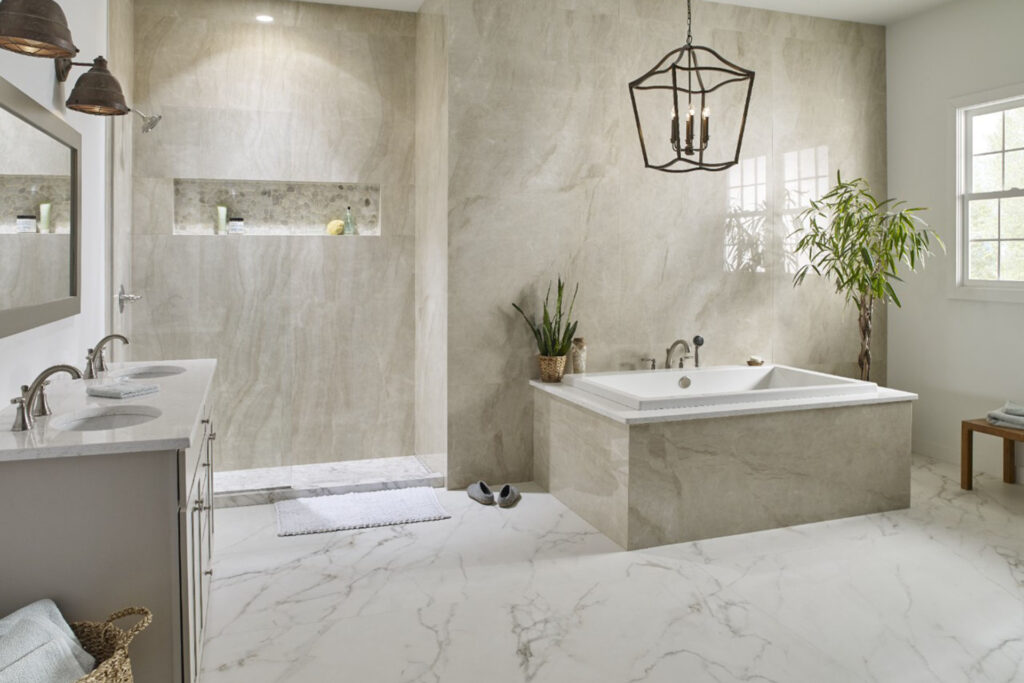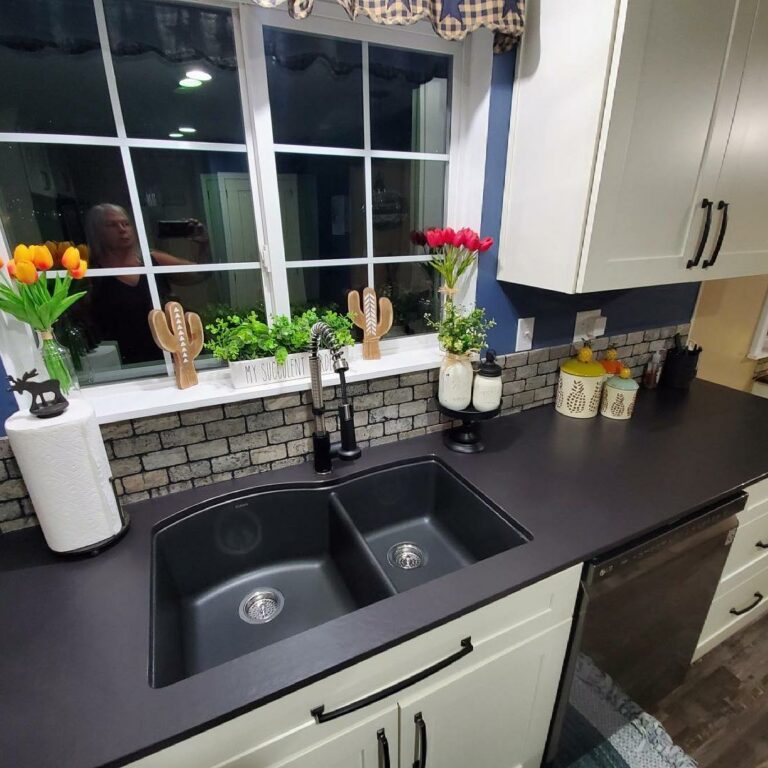Porcelain has emerged as a popular choice for countertops, showers, and wall cladding due to its remarkable versatility and durability. While extremely popular in mega cities such as New York, Miami, Tokyo, and Milan, porcelain countertops and other surfaces have not truly taken off in the South Sound area yet. In this blog post, we will explore the pros and cons of using porcelain for these applications. Whether you’re considering porcelain for your home or a commercial project, this comprehensive guide will help you make an informed decision.
Pros of Porcelain for Countertops, Showers, Fireplaces, and Wall Cladding
- Good Durability: When installed correctly, porcelain is highly resistant to scratches, stains, and heat. It can withstand heavy daily use, making it ideal for countertops and high-traffic areas. In showers, porcelain’s resistance to water absorption and moisture damage ensures longevity and easy maintenance. Additionally, its durability makes it suitable for wall cladding, providing long-lasting protection.
- Aesthetic Appeal: Porcelain offers a wide range of design options, including colors, patterns, and textures that can replicate the look of natural stone, wood, or concrete. It provides a versatile canvas for achieving various design styles, from modern to traditional. The consistency of porcelain slabs also allows for seamless installations, creating a sleek and uniform appearance.
- Low Maintenance: Porcelain surfaces are non-porous, making them resistant to stains and easy to clean. They do not require sealing like natural stone countertops and are less prone to harbor bacteria and mold in showers. With regular cleaning using mild detergent, porcelain maintains its pristine appearance.
- Hygienic Properties: Porcelain’s non-porous nature makes it a hygienic choice for countertops and showers. Its smooth surface prevents the absorption of liquids, reducing the growth of bacteria and mold. This makes it a suitable option for areas where cleanliness is crucial, such as kitchens and bathrooms.
- Warmness: Porcelain offers a warmer touch compared to natural stone or quartz surfaces. This characteristic adds a comforting and inviting feel to spaces, making it particularly appealing in colder climates, like remodelers within the Pacific Northwest, or for those who appreciate a cozy atmosphere.
- UV Resistance: Porcelain has excellent tolerance to UV light, making it an ideal choice for outdoor applications. Unlike quartz, porcelain resists fading and discoloration caused by prolonged sun exposure, ensuring that the surface retains its original appearance even in outdoor settings such as patio countertops or wall cladding.
Cons of Porcelain for Countertops, Showers, and Wall Cladding
- Cost: Porcelain can be more expensive than other countertop and cladding materials. The quality, design, and brand can significantly influence the cost. However, considering its durability and long-term benefits, porcelain can be a worthwhile investment.
- Fractures/Chipping: While porcelain is highly durable when installed by a trained team of installers, it can be prone to chipping or cracking if subjected to heavy impact. Care should be taken during installation and when handling heavy objects on countertops or in showers. Additionally, if a tile or slab is damaged, replacing it can be challenging, particularly if the specific pattern or design is discontinued.
- Installation Expertise: Proper installation of porcelain requires expertise and precision. It may be best to hire experienced professionals to ensure the tiles or slabs are correctly aligned, leveled, and securely adhered. Improper installation can result in uneven surfaces or potential issues with water penetration in showers. Ensure your contractor is licensed, bonded, and trained to install porcelain (Tops Solid Surface checks all of these boxes).

For more porcelain ideas you can check out Florim’s gallery here!
Porcelain offers numerous advantages for countertops, showers, and wall cladding, including exceptional durability, aesthetic appeal, low maintenance, hygienic properties, and its warm touch. While it may have some drawbacks such as cost, fragility, and the need for professional installation, the benefits make porcelain a compelling choice for those seeking long-lasting and versatile surfacing solutions.
Check out some options/ideas for porcelain applications here on our website.
